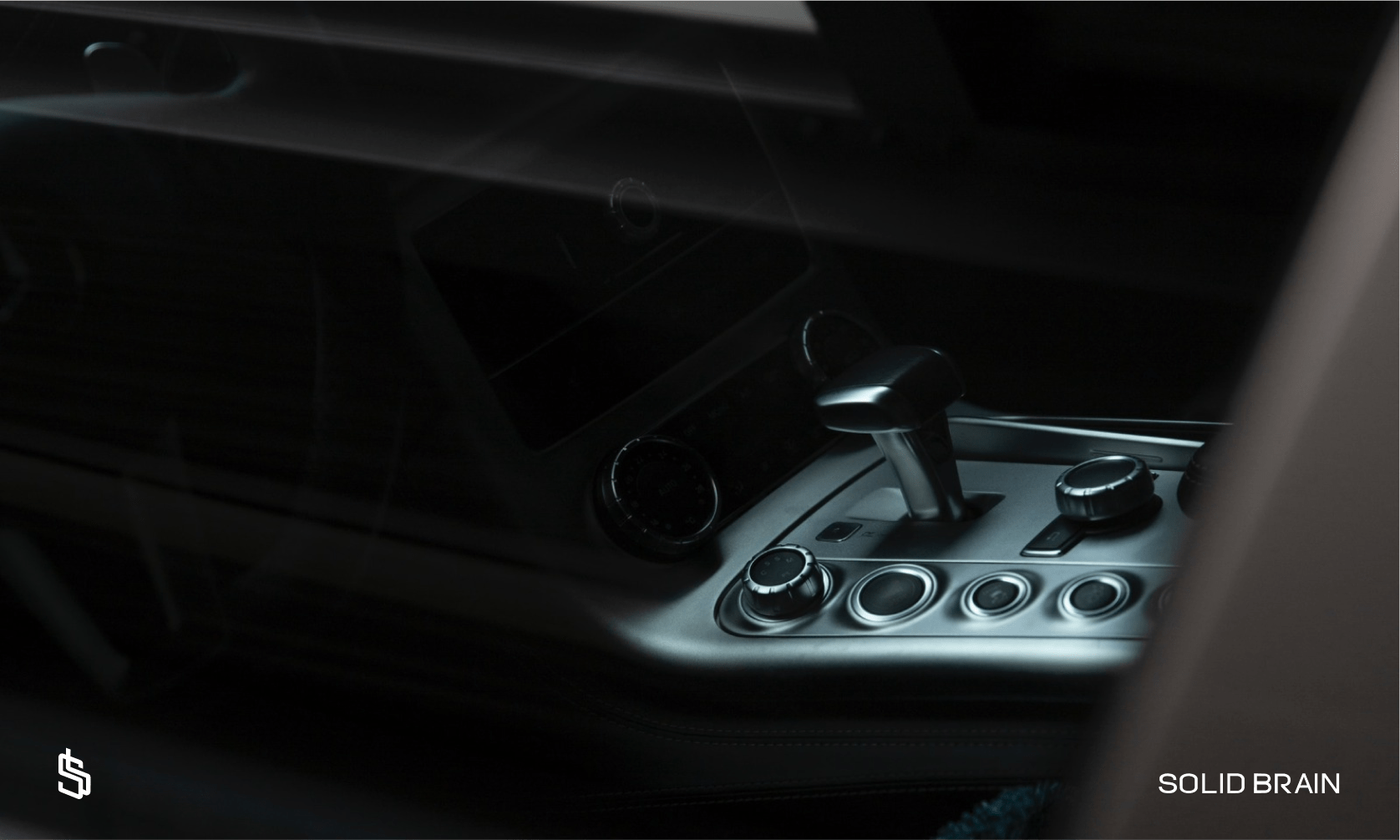Artificial Intelligence has already touched almost every aspect of our daily lives. It helps us choose the products when we come to the website, provides customer support, prevents cyber threats, and does a lot of other things that make our lives easier. The automotive industry isn't an exception and is considered one of the most AI-influenced fields. Thanks to it nowadays we can take advantage of self-driving cars, real-time traffic predictions, voice assistance, etc. Such implementations have resulted in enhanced safety and easier car navigation.
One of the key components of AI is machine learning. Artificial intelligence focuses on creating smart systems and ML helps to do that by supplying it with the needed data. In simple words, machine learning doesn't tell AI what to do but provides it with a lot of examples, based on which the system figures out how to do things.
In this article, we want to delve deeper into the role of AI in the automotive industry, look at the ways it helps us now, and make predictions.
What is AI in the Automotive Industry?
Talking about AI and ML in the automotive industry, we can say that their concept was used for the first time almost 70 years ago. That was the Mercedes-Benz AI-based driver assistance system known as the Anti-lock Braking System. The company wanted to improve steering control and prevent the amount of accidents when it's wet. That's why they decided to make something that would constantly monitor the wheel rotation. Specialists made a system that operated the brakes after detecting a deviation from the pattern. Eventually, this implementation led to:
-
Enhanced safety
-
Improved steering control
-
Adaptive braking.
Overall, we can characterize AI in the automotive as a modern tool that influences the industry with enhanced machine learning and aims to ease your road experience.
AI and ML in the automotive industry have changed vehicle production and now we can take advantage of a safer road experience. The first AI-powered thing that comes to mind is Tesla as it's famous for the use of ML in automotive. As for now, the company integrates a real-time AI system that takes information from the eight cameras placed in the car and identifies the traffic lights, obstacles, pedestrians, etc. However, it is not the only integration of AI and machine learning in the automotive industry. So, let's take a look at some more.

Vehicle diagnostics
This example of using AI auto parts for vehicle diagnosis includes constant car health monitoring to detect issues and solve them at once. Overall, the system analyzes the following points:
-
Fuel
-
Driver behaviour
-
Faults.

Fast repair
You can download AI-powered apps that are used to identify the needed details in case of an accident. For this, you just take a photo of the car and the ML auto parts system will monitor it in real-time, providing you with guidance on the actions to take next.

Road view
Most of the cars that are used to supply you with delivery or taxi services also take the benefit of AI, ML in the automotive industry. For faster and safer delivery, they use AI tools for monitoring road conditions, traffic, etc. The system can also provide them with different ways to go and the road that has the lowest level of traffic.

Why Do We Need AI in the Automotive Industry?
Both AI and ML in automotive play a vital role for car drivers. Taking advantage of this modern tool users get 5 main benefits.
Better safety
Such weather conditions as rain, snow, fog, or heavy winds increase the likelihood of accidents on the road. However, AI auto parts that are integrated into the cars help people navigate through these obstacles. They mostly do that thanks to the Advanced Driver Assistance Systems or ADAS which includes such features as adaptive control, lane-keeping assistance, braking, etc.

Increased car efficiency
Using the information given from ML in automotive, the system can also adapt to driving conditions. It takes into account the car traffic, examines it, and gives the best road to take.

Fewer costs
Enhanced data analytics leads to fewer costs that you spend on car maintenance. Thanks to ML in automotive, which is used for analyzing data, AI can analyze the overall maintenance and make predictions according to vehicle failure. So, you might know the possible risks before any situation happens.

Decreased the level of pollution
Considering environmental points, it's difficult to name electric cars as the most eco-friendly means of transport. However, they are still better than the internal combustion engine that traditional vehicles use. That's because electric cars can be charged by taking electricity from different sources such as solar and wind power.

The Future of AI in the Automotive Industry
Nowadays we see that both ML in automotive and AI are constantly enhancing. If we compare the first integration with those that we see today, we'll notice a big difference. Something that seemed to be impossible several years ago is a part of our daily life now. In the future, AI and ML in automotive are expected to increase their influence on safety by integrating more sophisticated systems.
Furthermore, we've noticed that ML in automotive has begun to give more and more personalized tools. That's why it is believed that cars will become smarter when it comes to predictive maintenance and other features.
That might sound weird, however, in some years we will be able to rely on connected cars that will communicate with each other and boost traffic management.
As there will be more and more integration of ML in automotive the need for strong cybersecurity will also grow. That's why specialists are also expected to work on data security measures.




